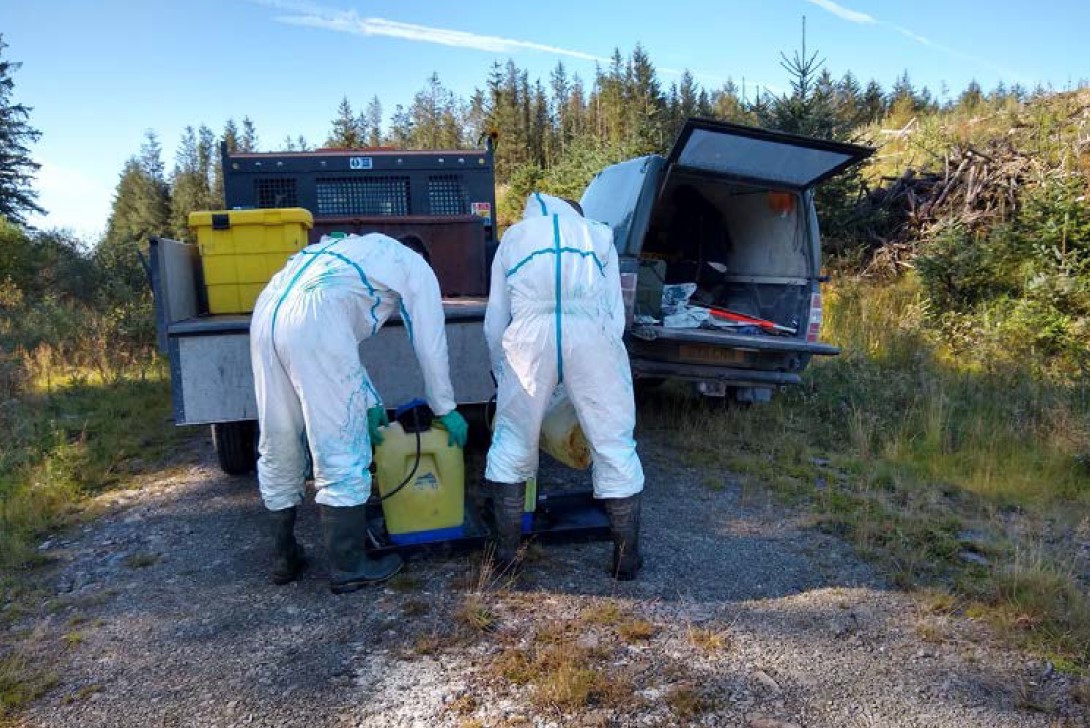Standard, good forestry practice measures were proven to be effective in preventing contamination of stream waters in a detailed study of acetamiprid runoff following the use of Gazelle SG as a pre-treatment and top-up spray in forestry undertaken at Esgair Gors in mid-Wales.
Despite progress in the development of non-chemical methods for controlling the large pine weevil (Hylobius abietis) on UK restock sites, there remains a need for insecticide treatment to prevent catastrophic damage to replanted trees on some sites. Until recently, alpha-cypermethrin and cypermethrin were the preferred insecticides for this purpose but concerns over their extreme toxicity to aquatic life has led to their replacement by acetamiprid on the public forest estate.
The site was selected to pose a high risk of chemical runoff, comprising a high elevation, headwater catchment with high rainfall and stagnopodzol soils.
The results reveal no contamination of the monitored streams draining the site. Only one sample, collected from a road drain immediately below the application site, had acetamiprid levels above the detection limit of quantification. This limited contamination was retained within the buffer area around the road culvert and did not reach the adjacent stream.
The results indicate that current measures are fit for purpose on high risk sites and both the planting of treated trees and top-up spraying can be safely be undertaken on sites draining to sensitive waters.

